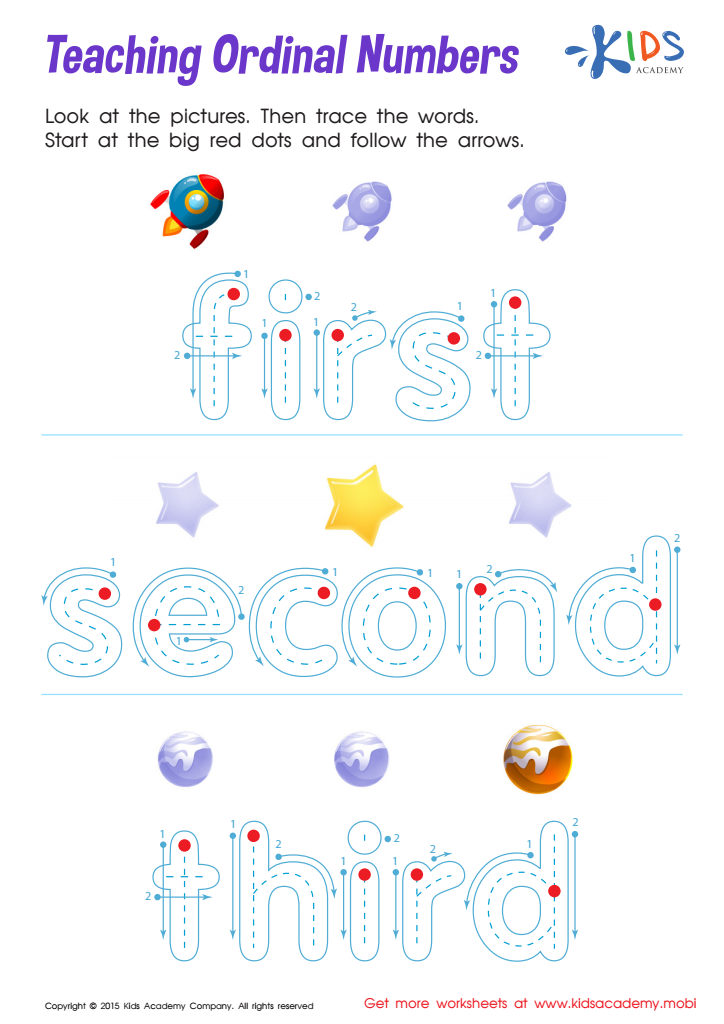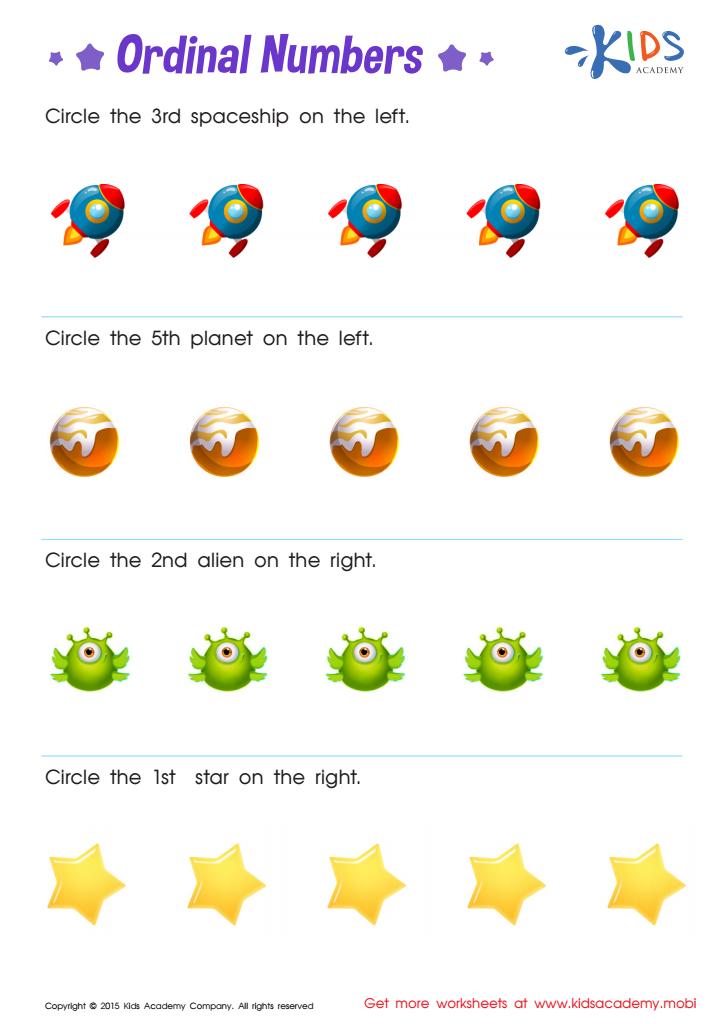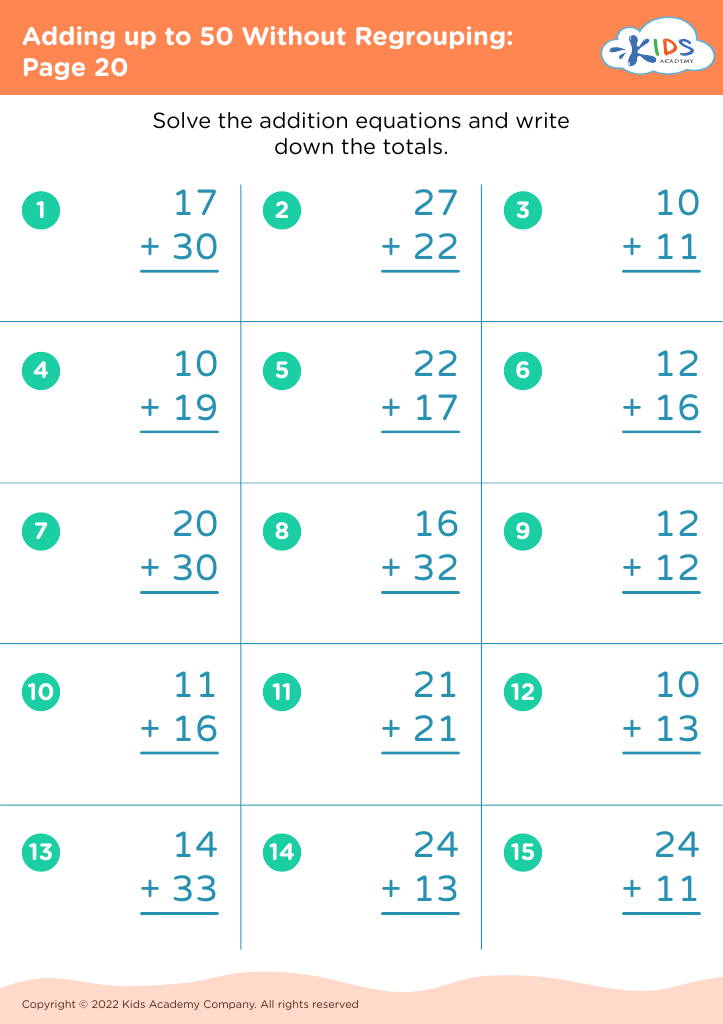Understanding ordinal numbers Addition & Subtraction Worksheets for Ages 3-7
3 filtered results
-
From - To
Discover the perfect tool to support your child's mathematical journey with our "Understanding Ordinal Numbers Addition & Subtraction Worksheets for Ages 3-7". These engaging worksheets are specially designed for young learners to grasp the concept of ordinal numbers while practicing essential addition and subtraction skills. With fun activities and colorful illustrations, each worksheet boosts both math proficiency and confidence. Ideal for preschool to early elementary children, our resources ensure your child's learning is both effective and enjoyable. Watch as they build a strong foundation in math through interactive and educational exercises tailored to their needs.


Ordinal Numbers: Teaching Ordinal Numbers Printable


Ordinal Numbers: Space Ordinals Worksheet
Understanding ordinal numbers and the basic concepts of addition and subtraction is crucial for early childhood development, especially for ages 3-7. This foundational knowledge sets the stage for more complex mathematical reasoning and problem-solving skills in later years.
Ordinal numbers—first, second, third, etc.—help children understand order and sequence, which are essential for daily activities and broader analytical skills. Recognizing these positions fosters logical thinking, helps them follow instructions more effectively, and enhances their ability to organize objects and ideas. For example, knowing who comes first in line or which block is the third in a series helps children make sense of their world in an orderly manner.
Addition and subtraction are the building blocks of arithmetic, essential for everyday tasks and future academic success. Mastery of these basic operations improves number sense, which involves understanding and working with numbers in a flexible manner. It encourages critical thinking and decision-making, as children learn to manipulate numbers to achieve desired results. Additionally, early competence in these areas boosts confidence and encourages a positive attitude toward math.
In summary, foundational mathematical concepts, such as ordinal numbers and basic arithmetic, are indispensable. They equip young learners with the necessary skills to tackle complex problems, promote intellectual development, and support both academic and real-life success.
 Assign to My Students
Assign to My Students

















